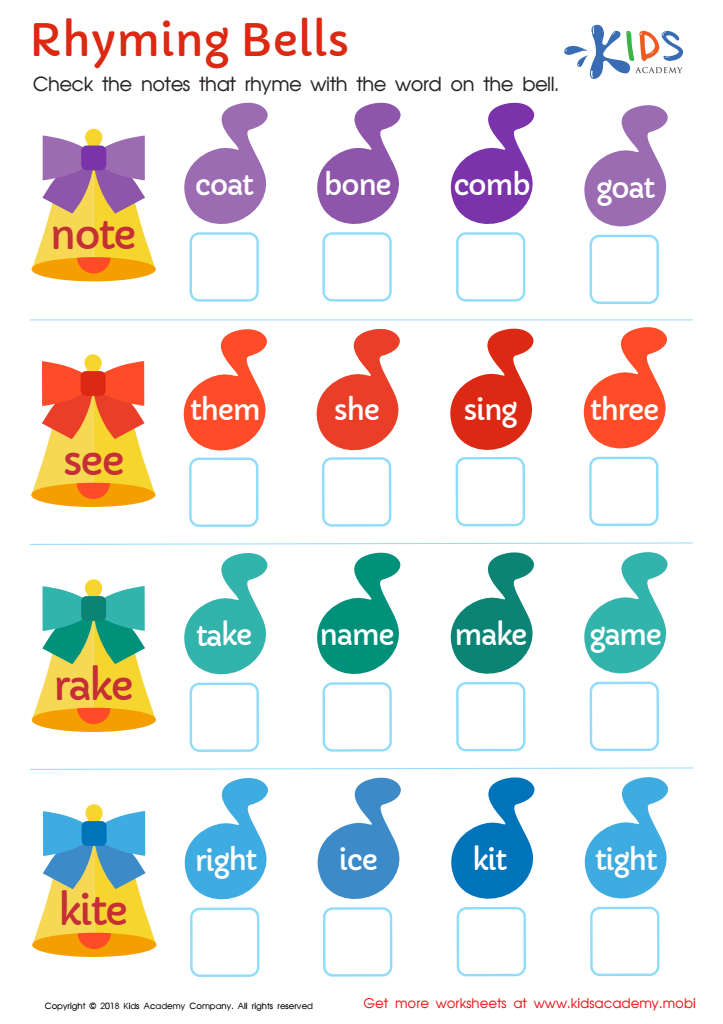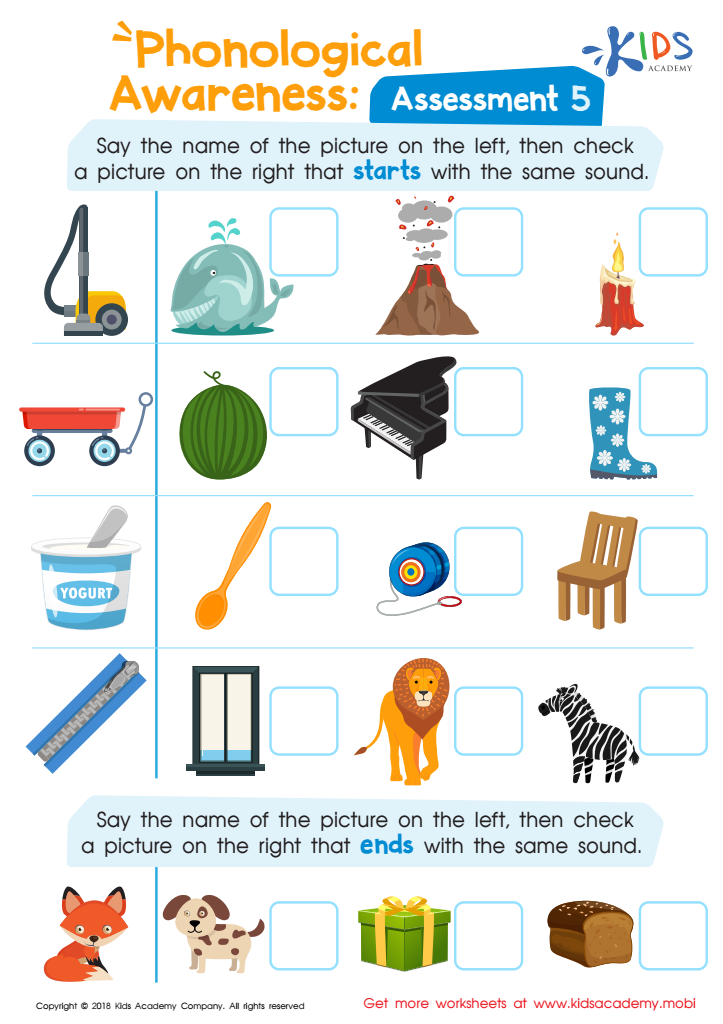Rhyming skills development Phonics Worksheets for Ages 3-6
5 filtered results
-
From - To
Welcome to our Rhyming Skills Development Phonics Worksheets for ages 3-6! Designed to foster early literacy, our engaging worksheets help young learners recognize and practice rhyming, a crucial phonics skill. Through interactive activities, children will explore word patterns, sounds, and sequences, enhancing their auditory discrimination and vocabulary. With colorful illustrations and playful themes, these worksheets captivate young minds and make learning enjoyable. Ideal for both classroom settings and home learning, our resource supports foundational phonics skills in an entertaining way. Start your child’s journey towards reading fluency and confidence with our carefully crafted rhyming worksheets today!


Rhyming Words Rhyming Worksheet


Rhyming Bells Worksheet


First Words: Picture Rhymes Worksheet


Phonological Awareness: Assessment 5 Worksheet
Rhyming skills and phonics are crucial components of early literacy development for children ages 3-6. During these formative years, children are learning to recognize sounds, patterns, and language structures. Rhyming helps children develop phonemic awareness, which is the ability to hear, identify, and manipulate the individual sounds in spoken words. This skill forms the foundation for reading and writing, as it fosters an understanding of how words are constructed and can be broken down.
Moreover, engaging in rhyming activities encourages vocabulary expansion and promotes a love for language through songs, poems, and stories. It nurtures listening skills and builds memory, both of which are vital for effective communication. Teachers and parents who prioritize these activities equip children with critical thinking skills and creativity.
In addition, research has shown that phonics instruction—understanding the relationship between letters and sounds—complemented by strong rhyming skills can lead to significant advances in reading fluency and comprehension. Thus, incorporating rhyming into early education not only supports literacy but also fosters cognitive growth and social interaction, preparing children for future academic success and helping them become enthusiastic learners.
 Assign to My Students
Assign to My Students





















